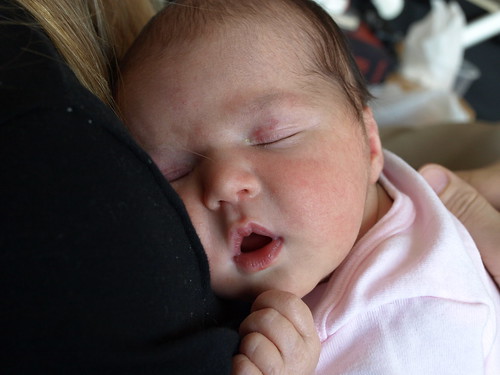Not all that long ago, I got really sick. (I haven't mentioned it here before - among other reasons, I've been recuperating rather than blogging about recuperating.) I was really sick. I spent a lot of time in hospitals while people worked to save my life.
Without health insurance, these would have been my options:
1. Death
2. Treatment - at the cost of $40,000 of debt
This is why I believe that health care is a right, not a privilege. Life, liberty, and the pursuit of happiness, right? Which part of having to go $40,000 in debt in order to save your own life constitutes liberty or the pursuit of happiness? And I didn't even have something complicated and expensive like cancer!
Although I was lucky enough to have health insurance when I got sick, not everyone is as lucky as me. And it *is* luck. I had no input into being born white, which is a huge privilege - and that's just for starters. I've had lots of other privilege in my life, and I agree with Luke that "unto whomsoever much is given, of him shall be much required". Dave and I are solidly middle class - ostensibly the demographic getting "screwed" by this bill, and we both agree that we are HAPPY to have to pay a little bit more in our taxes so that fewer people have to decide between life and crippling debt.
For the record? When I was sick? If I'd had to make that choice? I would have chosen to die. I'm not saying that's what everyone would or should choose, but it would have been my choice. I was pretty motherfucking sick and I felt pretty motherfucking bad. So if you read this blog, you probably know me. Know that without health insurance, you would not be reading this right now, because I would be dead.
Thousands of Americans have to make non-hypothetical versions of my choice, and they not only have blog readers, they have friends and families and people who love them - but who aren't in a position to spot them $40,000. Just pause for a second, and let that idea sink in.
* I am most unhappy about the rabidly oppressive Stupak provisions, and second-most unhappy that the issue of the cost of health care hasn't been directly addressed. But my friend Jodi, an economist, wrote a great post about the way the bill works from an economic point of view, and she's a lot
I used to work for an insurance company, and at this job I learned that, in Massachusetts at least, no driver, no matter how risky, could be denied automobile insurance. If a driver is rejected from insurers via the traditional channels, he can get insurance via a secondary pool that all of the insurers have to contribute to. These premiums are higher than in most other cases, but at least there is an insurance option for people who want to operate a car. This seems to work pretty well, so why not have the same for health insurance?
In a way, that’s pretty much what we are ending up with. (For the record, it costs about twice as much to insure me as it costs to insure my car. This ratio is lower than it probably should be because I am a bad driver.) Insurance exchanges are being set up to serve customers who cannot get insurance from private companies directly. People are even being treated better than my car since they are getting subsidized if they have an income such that regular health insurance is “unaffordable.” (I hate that word, since it really has no good meaning, but you get my point.) And yes, this works in some fashion as a transfer from the more wealthy to the less wealthy, since it has to be paid for somehow and we have a progressive income tax. (See below for more on this point and deficit neutrality.)
Go read the whole thing, though; it's worth it. Plus there are cartoons!







